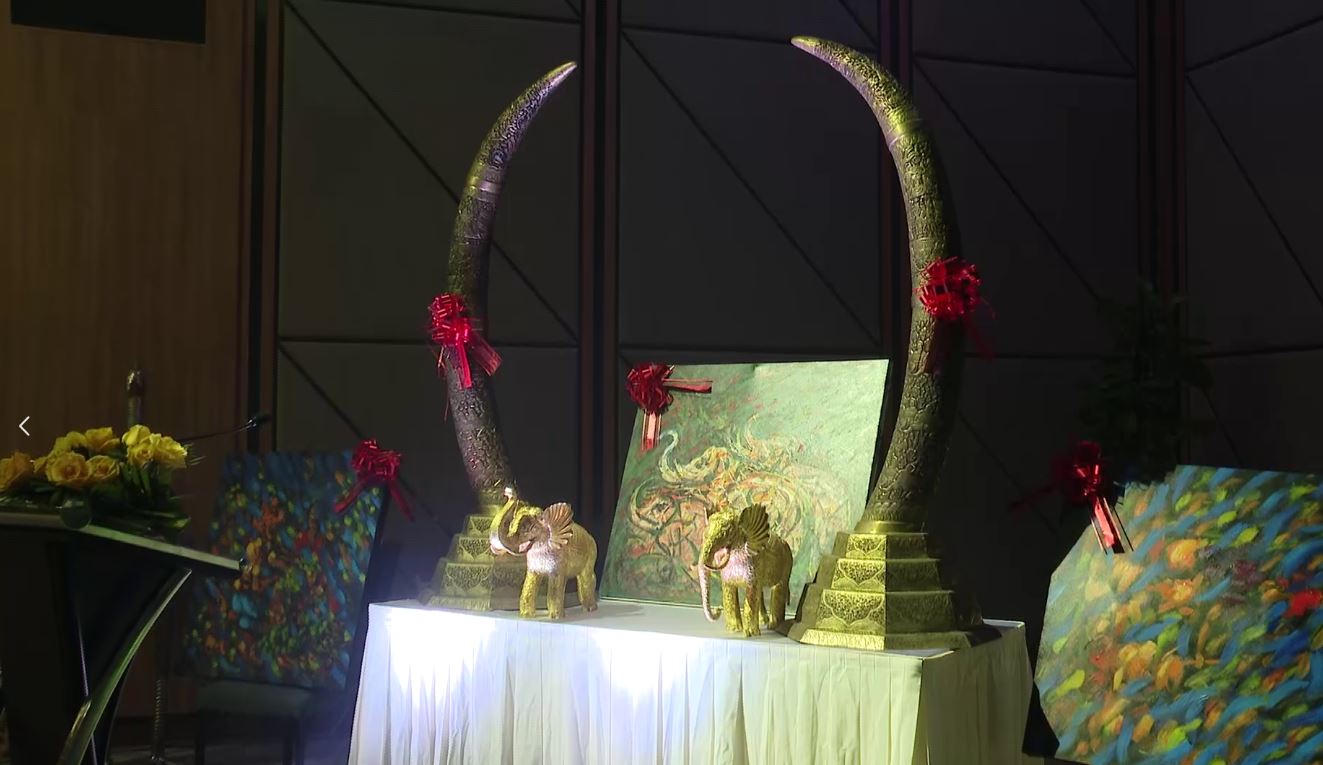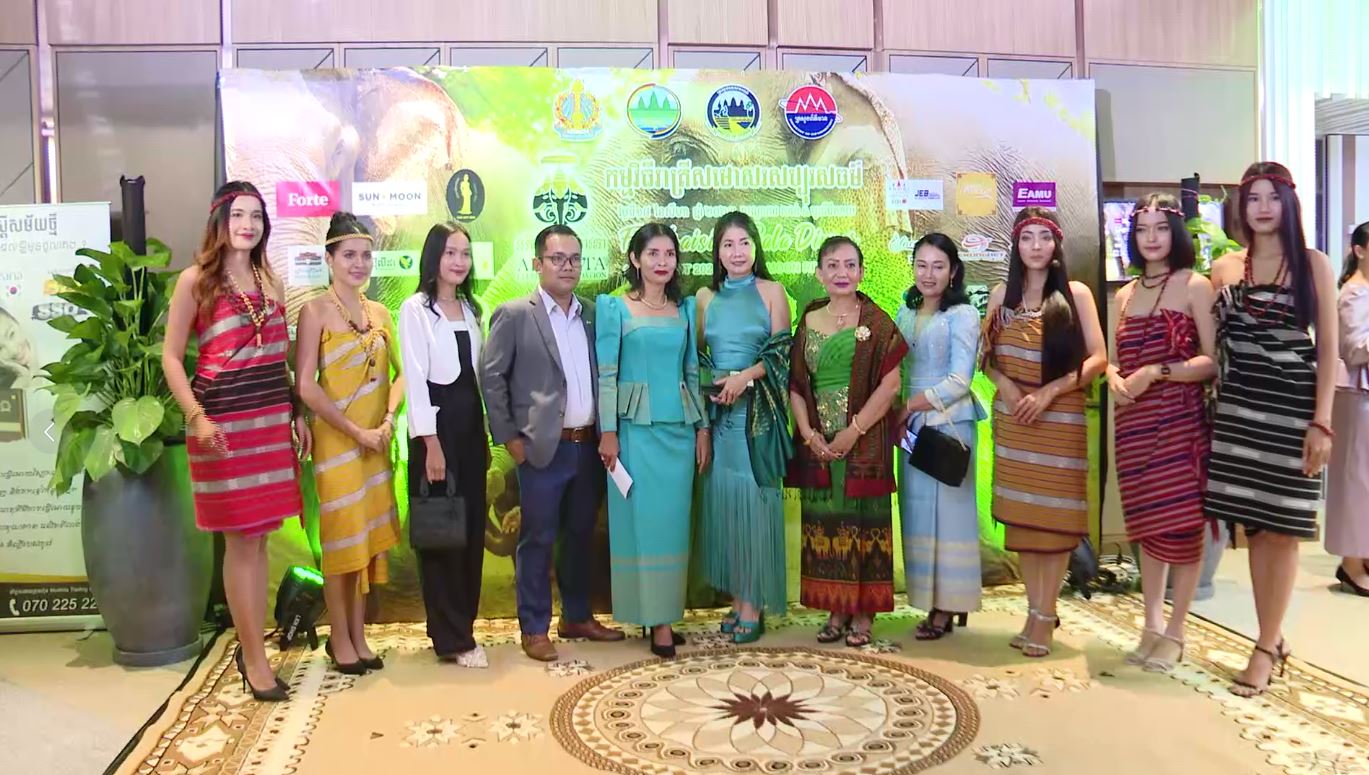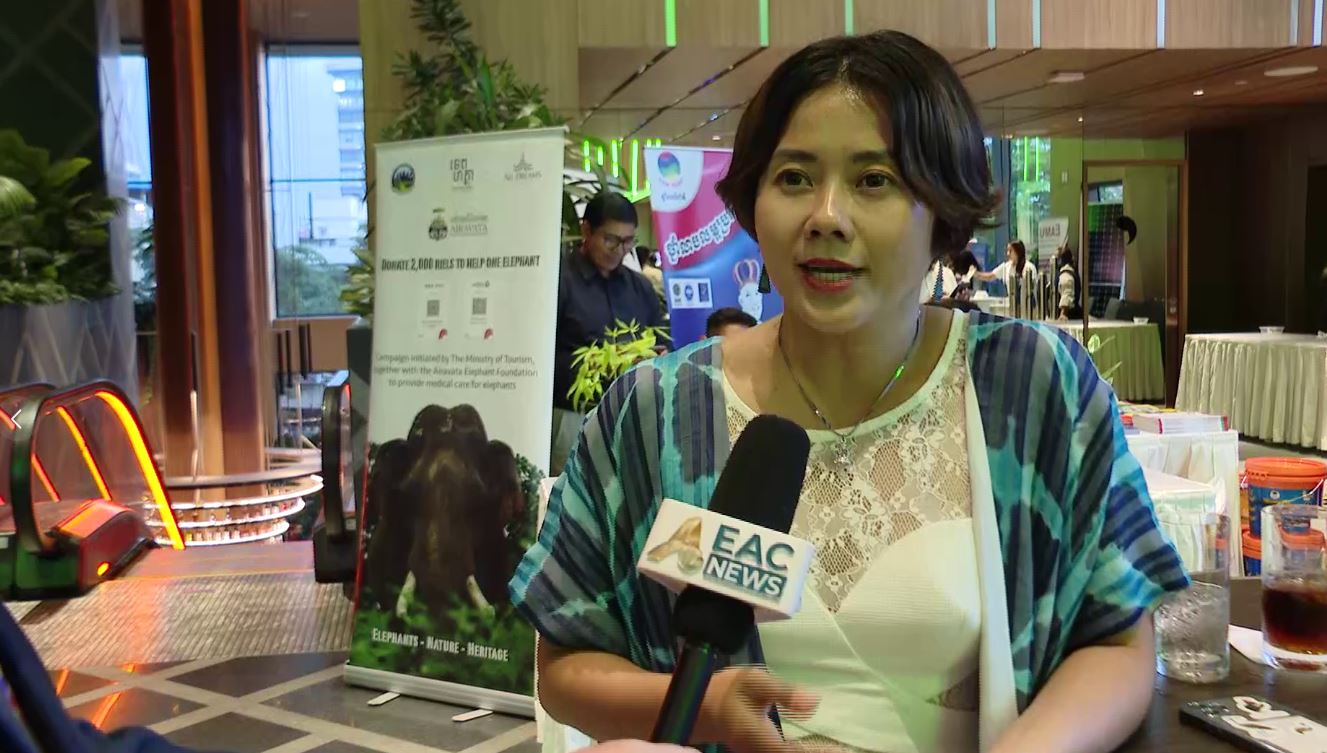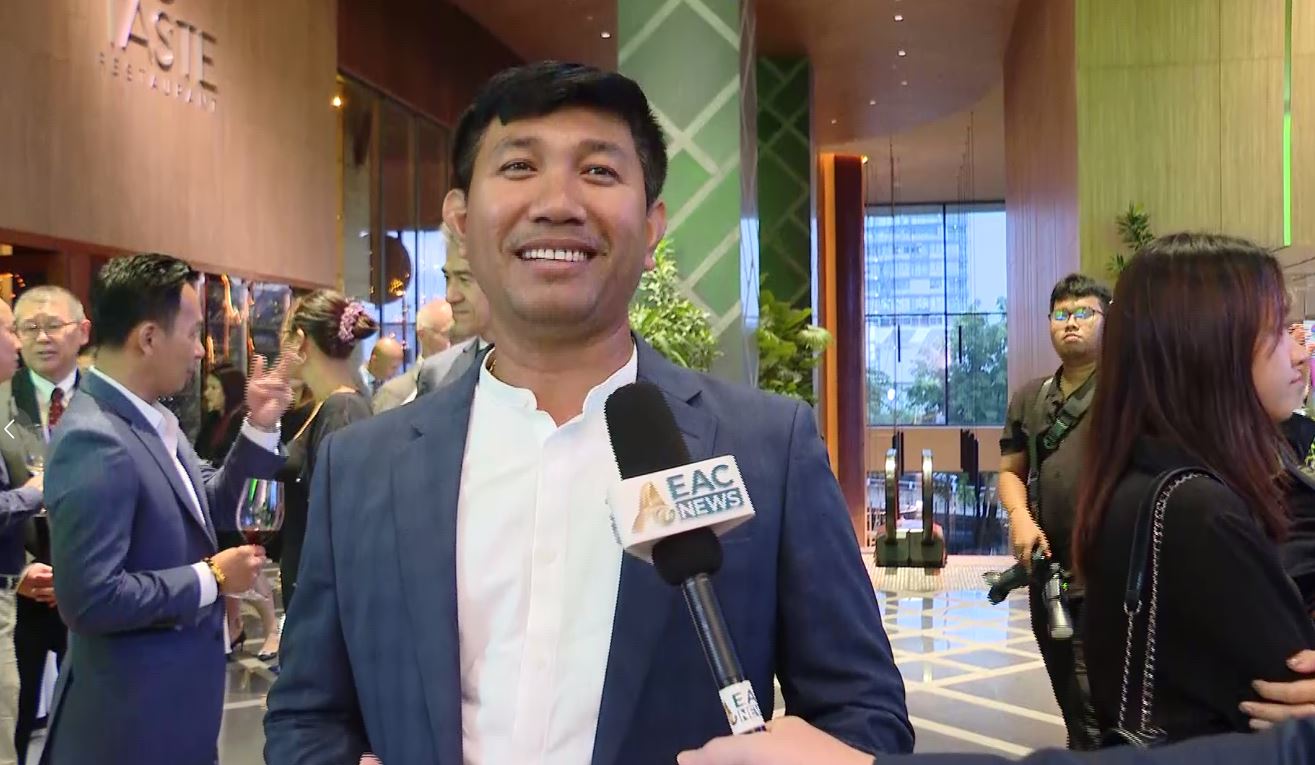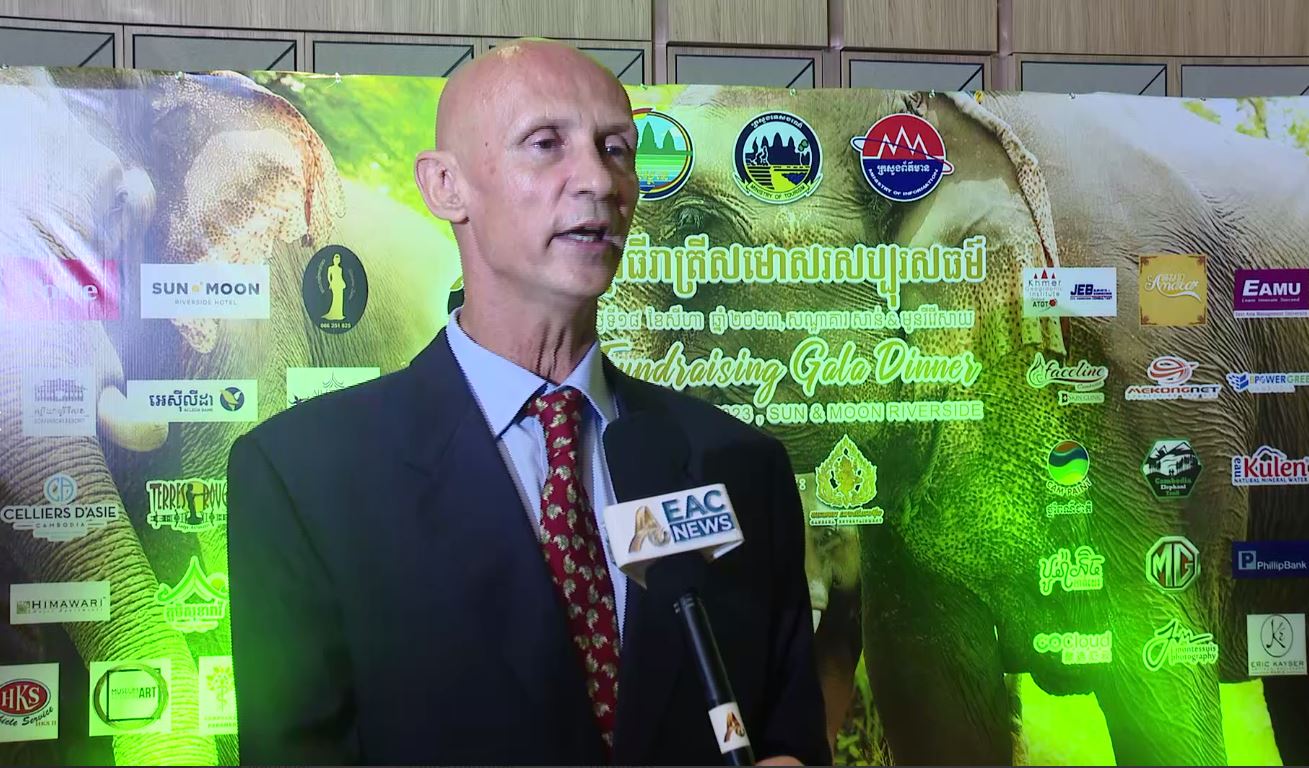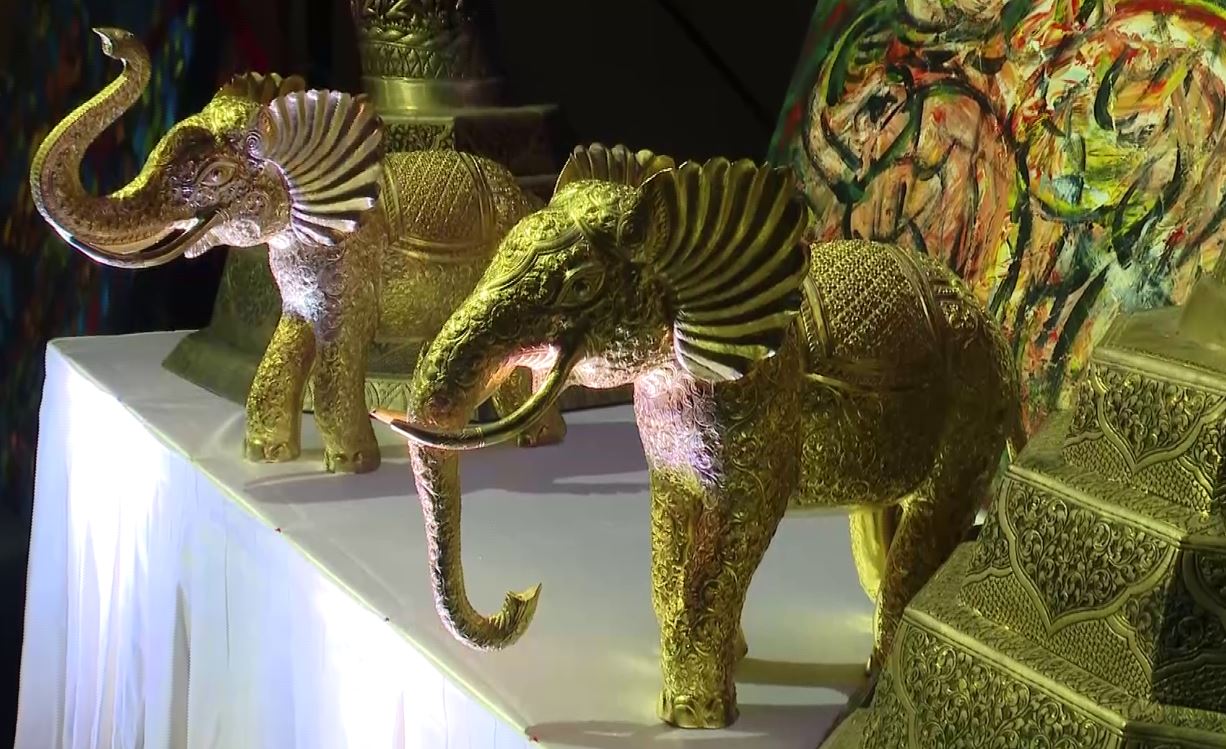PHNOM PENH: Founded in 2015 by Chenda Clais and her husband Pierre-Yves, the Airavata Elephant Foundation is a “new generation” elephant camp that promotes itself as a responsible and ethical alternative to mass tourism. On Friday, August 18, Airavata held its 5th annual fundraising gala in an effort to raise funds and awareness, promote traditional Khmer culture, protect the environment and help preserve the indigenous traditions of elephant breeding.
Like so many other South East Asian countries, Cambodia’s rapid development poses a threat to the country’s formidable bio-diversity. With an estimated wild elephant population of 400-600 and around 75 domesticated individuals, the Asian elephant is in great danger of disappearing from Cambodia, just like the tiger did 20 years ago.
In an effort to conserve Cambodia’s ancient relationship with the elephant, guests, sponsors and conservation enthusiasts gathered at the Sun and Moon Hotel for a night of fundraising via auctions and pop-up booth sales. Guests were treated to traditional Khmer song and dance, an elephant-themed Bokator show and a musical performance by Cambodian singer Sai. Sotheavy At is in awe of elephants and hoped that the evening would bring some relief to the animals. “Tonight I really hope that they're going to raise a lot of money in order to support the elephant. Elephants are part of Cambodian tradition,” she said.
The goal of the Airavata Foundation is to demonstrate that an elephant camp can be managed without having to exploit or abuse the animals. In the past, elephant trainers captured the elephants in the wild. The Airavata Foundation started by adopting elephants from villagers who could no longer take care of their domesticated elephants. Since then, they have established a program of breeding and rehabilitation. Sotheavy At’s first interaction with an elephant was at a zoo, but she found visiting the Airavata sanctuary to be a much more holistic experience. “I visited the sanctuary in Ratanakiri and to kind of see them living in the forest, in the wild and how the community working to support them. For me, I feel very personal and to kind of go around and pet the elephant,” she said.
Thorng Sras works for Forte Insurance, one of the event’s sponsors, and supports the work Airavata does in encouraging Cambodia towards caring for its wildlife. He noted the time and effort that goes into raising an elephant and the importance of such hard work. “The elephant is one of the animals that is a rare animal. It takes a very long time to raise up this elephant. [This is an] animal that people should take care and especially Cambodian people should take care of our animals, especially for the wild animal,” he said.
The Airavata Foundation has faced criticism, especially from the West, for being one of the only sanctuaries to allow human contact with the elephants. VP of the Airavata Foundation, Pierre-Yves Clais, says that those criticisms are founded through a Western lens that does not consider Cambodian culture and history, especially when it comes to their relationship with elephants. “Airavata is the only one who takes care of the elephants within the Cambodian culture. For the others, the elephant is only an animal. For us, it's a very symbolic animal for the country. And it has helped the Cambodians to build their temples; it has helped them to win their wars. And it's important that we still have the same relationship in between man and elephant, which a lot of people, especially in the West, don't approve of.” Asian elephants have had a relationship with humans for some 4,000 years. Historically, elephants were used as beasts of burden, for logging, as war mounts, ceremonial animals or simply kept as a status symbol.
With over 400 guests attending the gala, the Airavata Foundation will be able to carry on, with funds received from philanthropists being used for the association's work, such as buying elephant food, paying salaries for elephant development staff at the sanctuary, administrative expenses, transportation, medicine and treatment of elephants. At the end of the day, Pierre-Yves Clais says the aim is to unite those interested in saving the elephants in Cambodia. “The aim of the Airavata Foundation is to bring back the elephant at the center of a Cambodian community,” he said.
